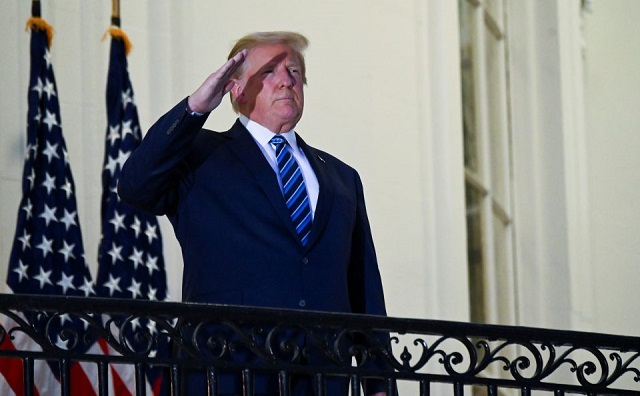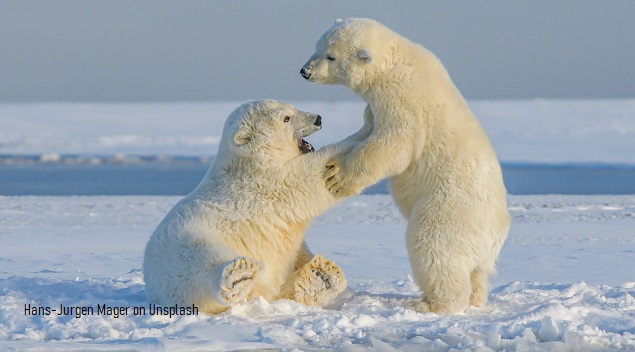‘Slippery Slope’: Internal Docs Show Just One Twitter Employee Raising ‘Serious’ Free-Speech Concerns Over Trump Ban

- In the immediate aftermath of Jan. 6, a junior staffer at Twitter was the only employee that appeared to express “serious” concerns about the effect that banning then-President Donald Trump might have on users’ speech, according to author Michael Shellenberger Friday, citing internal documents provided by CEO Elon Musk.
- The unnamed staffer’s comments stood in contrast to other employees, who, according to former head of trust and safety Yoel Roth, were not “happy” with Twitter’s position on Trump following the riots, Shellenberger reported.
- “This now appears to be a fiat by an online platform CEO with a global presence that can gatekeep speech for the entire world – which seems unsustainable,” the staffer wrote, Shellenberger reported.
As Twitter executives sought a justification to ban then-President Donald Trump in the aftermath of the Jan. 6, 2021, Capitol riots, only one employee appears to have expressed “serious” concerns about the potential impact the move might have on users’ speech, author Michael Shellenberger tweeted Friday, citing internal Twitter documents provided by new CEO Elon Musk.
The employee, a junior staffer, posted a message in a lower-level channel on the company’s internal Slack messaging system, questioning the “one off” nature of the decision, which did not appear to match with Twitter’s public policies, according to Shellenberger. Twitter employees usually considered moderation decisions to be “one off” events when they were made at the discretion of Twitter employees, as opposed to following a particular policy, Shellenberger reported.
“This might be an unpopular opinion but one off ad hoc decisions like this that don’t appear rooted in policy are [in my opinion] a slippery slope and reflect an alternatively equally dictatorial problem,” the unnamed staffer wrote, according to Shellenberger. “This now appears to be a fiat by an online platform CEO with a global presence that can gatekeep speech for the entire world – which seems unsustainable.”
On J8, Twitter says its ban is based on "specifically how [Trump's tweets] are being received & interpreted."
But in 2019, Twitter said it did "not attempt to determine all potential interpretations of the content or its intent.” https://t.co/2jW1s5pH4W pic.twitter.com/8gZwIDtyUQ
— Michael Shellenberger (@ShellenbergerMD) December 11, 2022
Roughly 40 minutes after the junior staffer posted their initial concerns, they sent a follow-up message, citing an article by The Washington Post’s Will Oremus, then a writer for tech publication OneZero, which noted that Facebook’s decision to indefinitely ban Trump “lacks a clear basis in any of Facebook’s previously stated policies, highlights for the millionth time that the dominant platforms are quite literally making up the rules of online speech as they go along,” Shellenberger reported.
“My concern is specifically surrounding the unarticulated logic of the decision by FB,” the staffer wrote, according to Shellenberger. “That space fills with the idea (conspiracy theory?) that all … internet moguls … sit around like kings casually deciding what people can and cannot see.”
While Twitter employees debated the decision to ban Trump, then-CEO Jack Dorsey was on vacation in French Polynesia, ultimately delegating a significant amount of the company’s actions during the crisis to former head of Trust and Safety Yoel Roth and former head of Legal, Policy and Trust Vijaya Gadde, Shellenberger reported. Dorsey sent staffers an email on Jan. 7 telling employees that the company needs to maintain consistent moderation policies, according to Shellenberger. (RELATED: Twitter’s Chief Censor Met Weekly With US Intelligence Officials While Trump Was In Office, Internal Comms Reveal)
“Jack’s emails have been _fine_… but ultimately, I think people want to hear from Vijaya, or Del, or someone closer to the specifics of this who can reassure them that the people who care about this are thinking deeply about these problems and aren’t happy with where we are,” Roth messaged an unidentified employee, according to Shellenberger. “A few engineers have reached out to me directly about it, and I’m chatting with them… but it’s so clear that they just want to know that _someone_ is doing something about this, and it’s not that we’re ignoring the issues here.”
The unnamed employee responded, arguing that some employees might not understand that “while it seems obvious and simple that we ‘should’ [permanently ban] his personal account,” the company would have to wrangle with the possibility of banning Trump’s official government account as well, a decision that required “thinking things through,” Shellenberger reported.
While the company had faced pressure to block or ban Trump in the past, it typically resisted those calls; the company’s Public Policy team posted a tweet in 2018 which argued banning world leaders for “controversial Tweets would hide important information people should be able to see and debate,” and would limit discussion of that leader without meaningfully silencing them, Shellenberger reported.
Twitter did not immediately respond to request for comment from the Daily Caller News Foundation.
AUTHOR
JOHN HUGH DEMASTRI
Contributor.
EDITORS NOTE: This Daily Caller column is republished with permission. ©All rights reserved. All content created by the Daily Caller News Foundation, an independent and nonpartisan newswire service, is available without charge to any legitimate news publisher that can provide a large audience. All republished articles must include our logo, our reporter’s byline and their DCNF affiliation. For any questions about our guidelines or partnering with us, please contact licensing@dailycallernewsfoundation.org.

